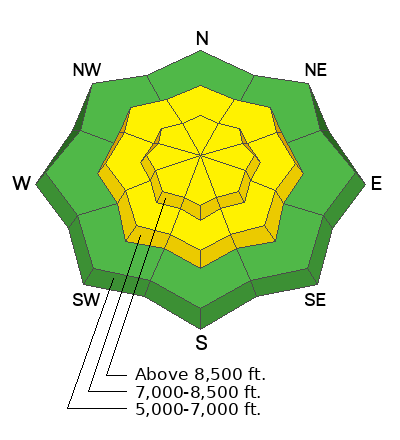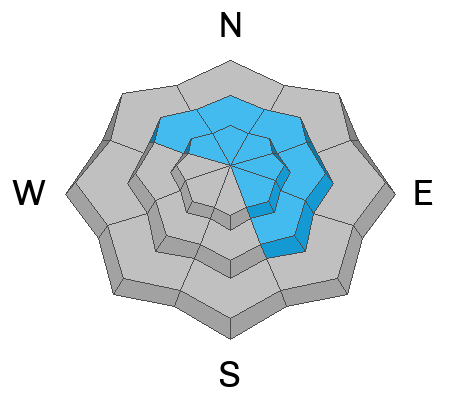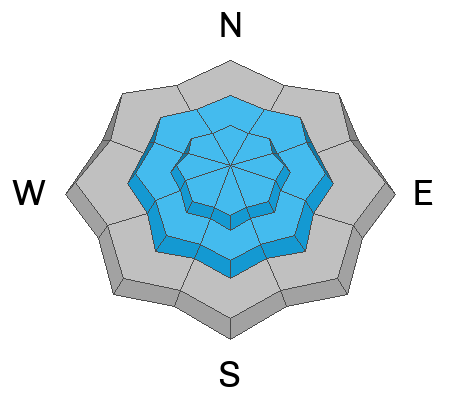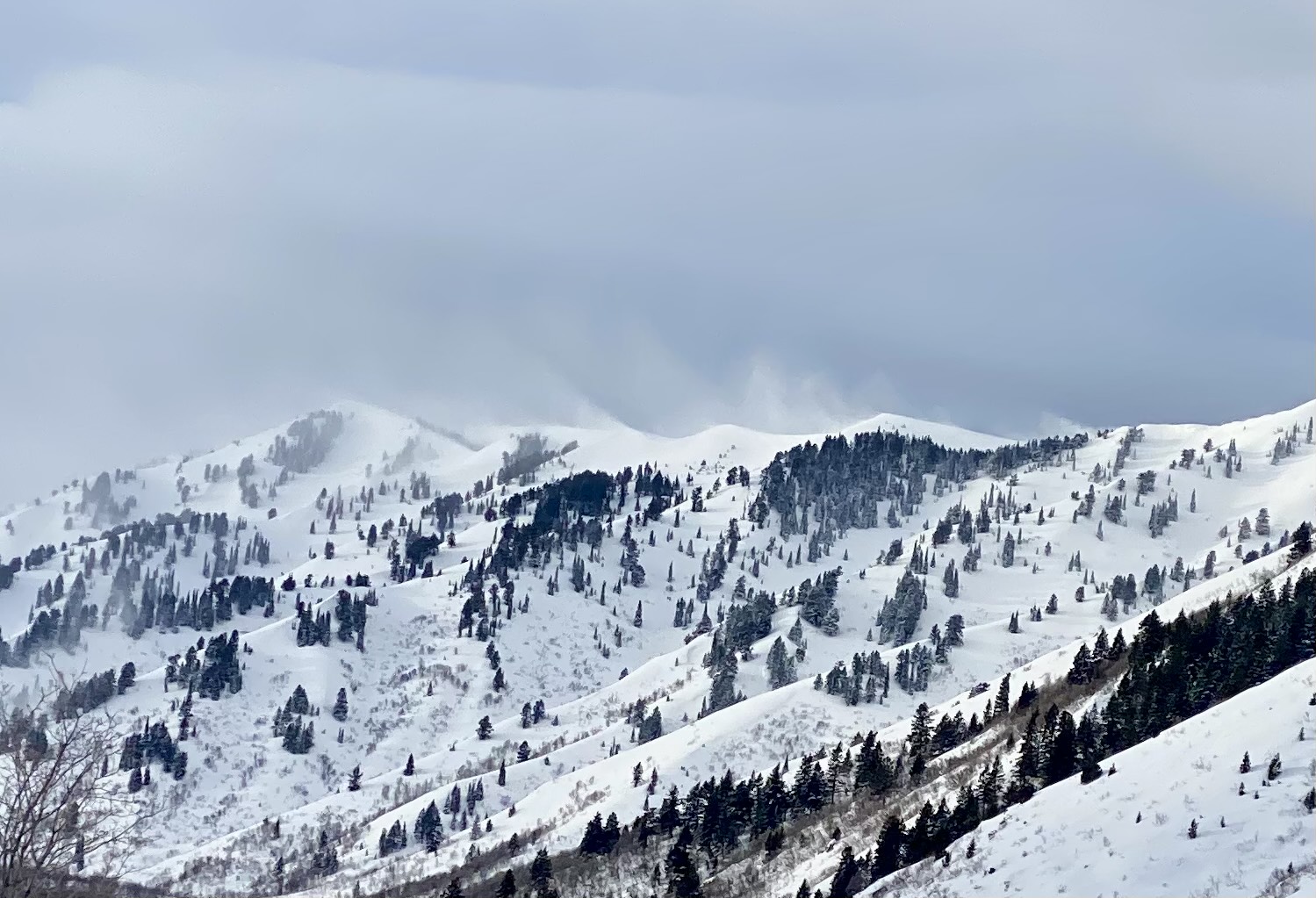Heavy snowfall and strong winds in the last few days have upped the ante and created heightened avalanche conditions on drifted upper and mid-elevation slopes. We've found nice deep powder riding conditions in sheltered upper and mid-elevation terrain. Yesterday's new snow was somewhat dense, and you sink deeply (sometimes up to your waist) when you step off the sled, but fat skis, snowboards, and sleds float pretty well in the top foot or so. The moist new snow on top of a hard dusty crust formed on Leap Day and March 1 is much shallower at lower elevations.
In drifted upper-elevation terrain, people could trigger 2 to 4-foot thick avalanches of wind-drifted snow. Drifting has formed cornices in many places, even in lower terrain. Up higher, cornices have grown to be very large and overhung, and these might be quite devious. Falling cornices could trigger wind slab avalanches on steep slopes below. Soft slab and loose avalanches of storm snow are also possible on steep slopes with recent deep accumulations of new snow even in more sheltered terrain.
The Tony Grove Snotel at 8400' reports around 14 inches of new snow in the last 48 hours, with 2.2" SWE (snow water equivalent) since Tuesday. It's 24° F, and there's 118 inches of total snow. About 8" of settled new snow accumulated at our new
Card Canyon weather station and there is 92" of total snow at around 8800' in elevation. This morning, diminished winds are blowing from the northwest 10 to 15 mph at the 9700' CSI Logan Peak weather station. At 9500' on
Paris Peak, light winds are blowing from the northwest, and it's 18° F.
Expect gradual clearing today, with partly sunny skies by afternoon. 8500' high temperatures are expected to be around 26° F, and the winds will blow 5 to 11 mph from the northwest. Expect mostly clear skies tonight with temperatures dropping to around 4° F and light winds veering from the northeast. Tomorrow will be sunny with high temperatures around 25° F and 10 mph winds from the east-northeast.
A short-lived high-pressure system will bring fair weather and warmer daytime temperatures in the mountains through the weekend. Snow is likely on Monday and early next week.
No new significant avalanches were reported recently, but visibility has been limited. Everyone has noticed the strong winds from the south and west, drifting tons of snow every day so far in March. However, snow safety teams triggered some fairly large wind slab avalanches in drifted terrain in the Ogden Mountains yesterday with explosives.
Check out all local observations and avalanches
HERE.











